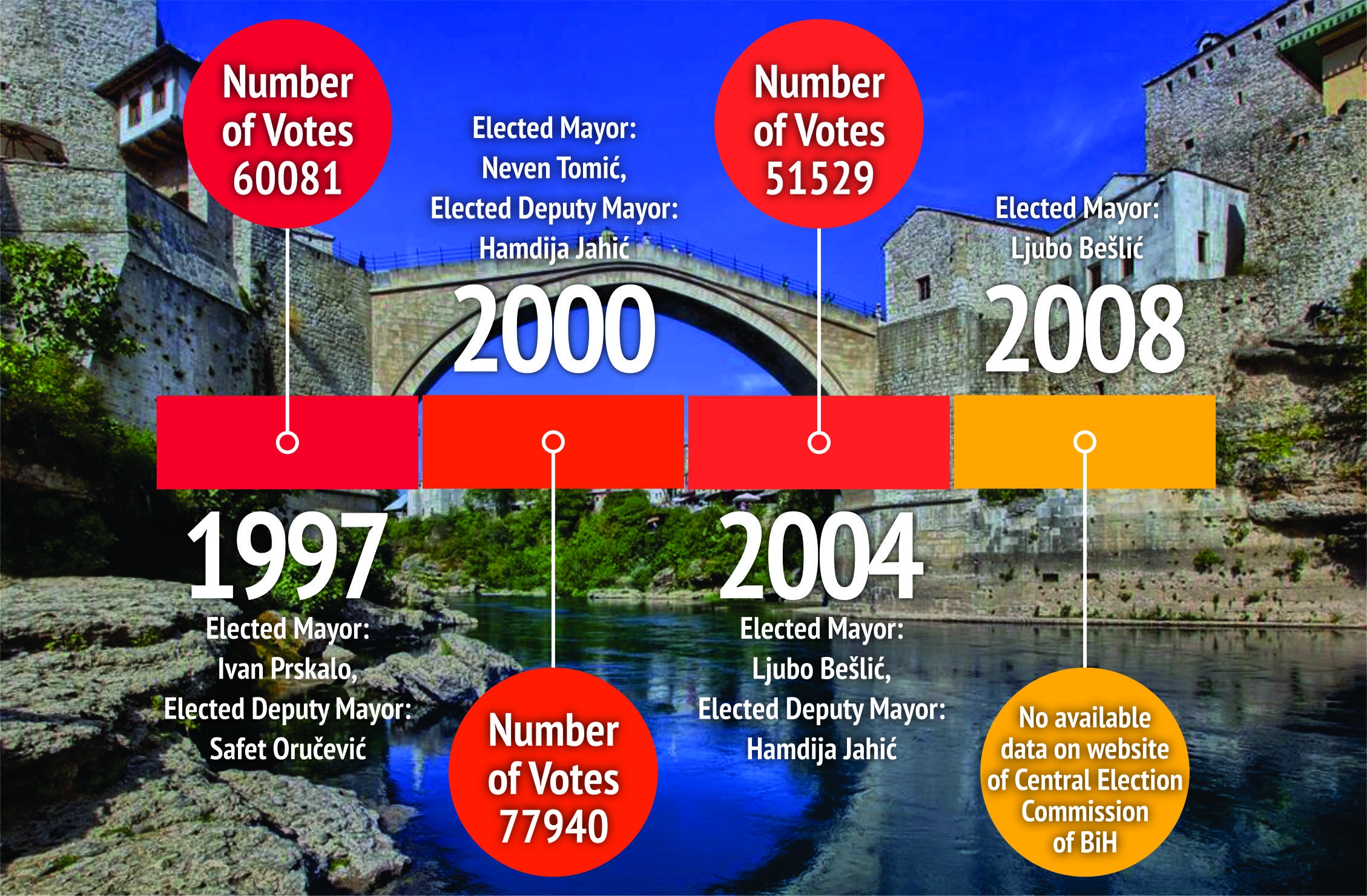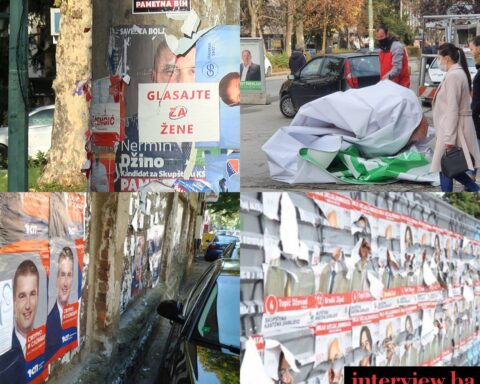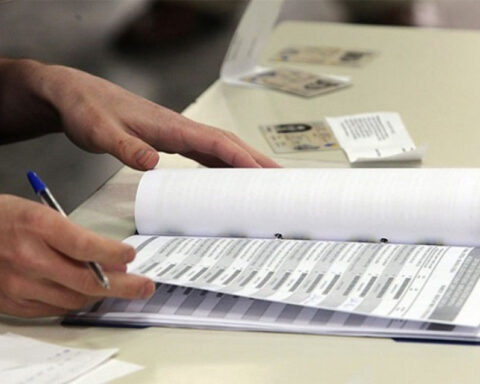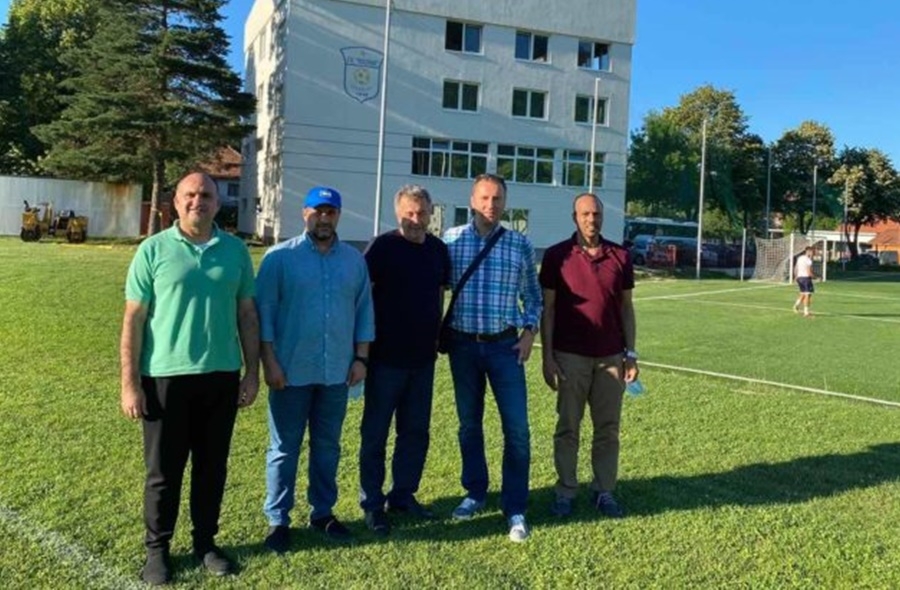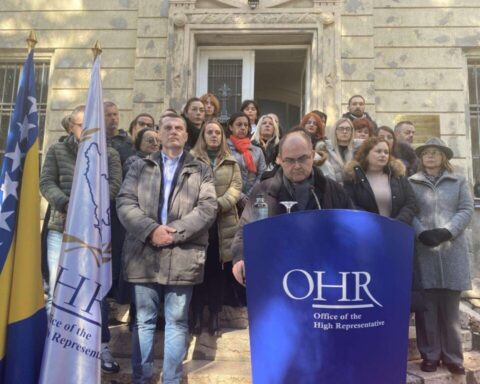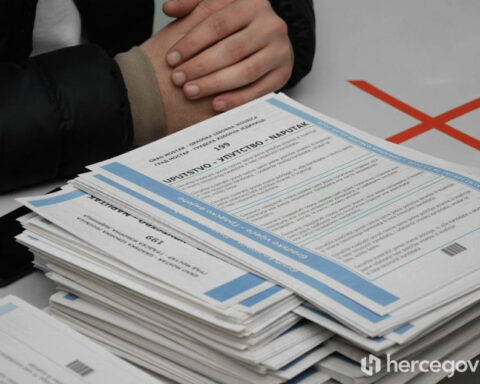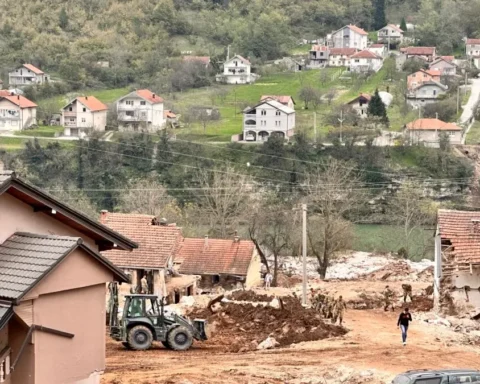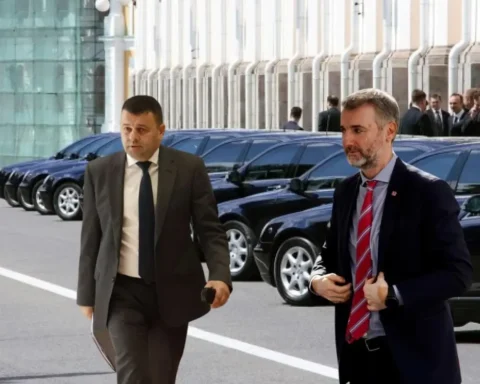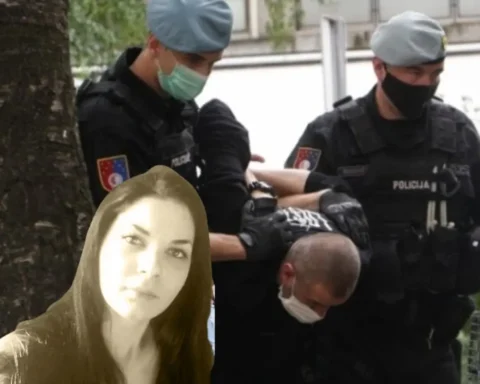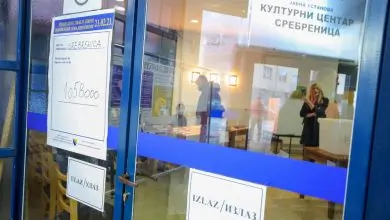After 12 long years, the ballot boxes for electing political representatives may be open again in Mostar on 20 December this year, following the 18 June signing of the ‘political agreement’ on elections by leaders of the Party for Democratic Action (SDA) and the Croatian Democratic Union (HDZ). The recent history of Mostar has seen numerous changes to the election system, and only four elections held since 1995 until today.
The 1995 Dayton Peace Accords ended the war in Bosnia and Herzegovina and established peace. The first local elections in the country were held in 1997, and 60081 residents of Mostar voted. In terms of votes, the dominant parties were HDZ BiH and the Coalition for Integral and Democratic BiH (SDA BiH, SBiH, LIBERALI BiH, GDS). Registered parties included the BiH Women’s Party. At the time, Mostar was organised into six multi-ethnic municipalities – constituencies (three with Croat majority, three with Bosniak majority, and the central zone whose residents could vote but could not stand at elections), and functioned on the basis of the Interim Statute of the City, proclaimed in 1996 by the German Hans Koscnick. The offices of mayor and deputy mayor were also introduced that same year, held by Ivan Prskalo and Safet Oručević until 2000.
The 2000 local elections followed the principles of the 1997 ones. A total of 77940 residents voted, and again most of the votes went HDZ BiH and the Coalition for Integral and Democratic BiH (SDA BiH, SBiH, LIBERALI BiH, GDS). Neven Tomić was elected mayor and Hamdija Jahić deputy mayor; both stayed in office until 2004.
In February 2004, the then-High Representative in BiH, the Briton Paddy Ashdown, proclaimed the new Statute of the City of Mostar. In his letter to the residents, he said: ‘The new election system will guarantee that no one people will be able to dominate the others.’ This Statute abolished the division into municipalities, which became city areas, but continued to provide the same number of members of the City Council, despite the fact that Croat-majority areas had a higher number of voters.
The 2004 local elections in Mostar were marked by a multitude of political parties and independent candidates. A total of 51529 residents voted. The winning parties were HDZ BiH and SDA. Ljubo Bešlić was elected mayor, and Hamdija Jahić deputy mayor.
{youtube}I6Hc8lie3oo{/youtube}
The last elections in Mostar were held in 2008. Although SDA was the overall winner with 12 seats in the City Council, and the greatest surprise was the People’s Party – Work for Progress, winning 7 seats, HDZ won 7 seats but ensured that the mayor was Bešlić, who had also been the first mayor after the abolishment of municipalities and the proclamation of the Statute of the City of Mostar. The Central Election Commission (CEC) BiH webpage did not allow access to the 2008 voter turnout data.
Dissatisfied with the Statute proclaimed by Ashdown, in 2009 the Croat parties filed an application with the Constitutional Court of BiH, arguing that Croats’ right were breached and that a single Bosniak vote was valued as several Croat ones.
In 2010 the Constitutional Court of BiH annulled the provisions of the Statute which defined the constituencies. They were deemed discriminatory, since they returned the same number of members of the City Council as the previous municipalities, although the numbers of residents were quite different, and residents of the central zone could not elect City Council members at all. Following this, the Constitutional Court of BiH instructed the BiH Parliamentary Assembly to change the Election Law, and the City Council of Mostar to harmonise the Statue with the Constitution. However, none of these changes were effected.
ČITAJTE NA VERZIJU NA B/H/S: DOSJE MOSTAR / Hronologija izbora u Mostaru od 1997. do danas
The City Council has been dysfunctional since 2012, following the expiry of its term of office. The city is managed by mayor Bešlić and the city budget is co-signed by the budget chief, a person of Bosniak ethnicity.
For years, SDA and HDZ have been looking for a solution, but their position diverged and were detrimental to the residents, unable to exercise their democratic and human right to elect the authorities to represent them. In several reports prepared by Interview.ba within a project entitled ‘Citizens Demand Answers’ by the Heinrich Boell Foundation, the residents of Mostar indicated corruption, lack of budget transparency, delays in infrastructure projects, projects lunched but either never completed or completed inadequately… but they were most frustrated by the fact that they could observe the situation with no power to change it.
The first to react to this situation was Irma Baralija, a resident of Mostar, who in 2018 filed an application with the European Court of Human Rights, against Bosnia and Herzegovina, because of the fact tht there were no elections in Mostar. In late 2019, the European Court of Human Rights unanimously ruled that BiH violated the European Convention on Human Rights, because it failed to implement the binding 2010 decision of the Constitutional Court of BiH to change the discriminating Mostar-related provisions of the BiH Election Law and harmonise them with the Constitution. Baralija thus won her case against Bosnia and Herzegovina.
It took less than a year for the leaders of SDA and HDZ to agree and find a solution. The political agreement on changes and amendments to the BiH Election Law was signed on 18 June 2020. The signatories then stated that the Mostar elections would definitely take place this year. The agreement requires a new Statute of the City of Mostar to be drafted, to facilitate the election of the City Council. It was confirmed that the future City Council would comprise 35 members, elected from two ballots. One covers the entire territory of the city of Mostar, the so-called city list, electing 13 members under a proportional representation system, and the other electing 22 members from six election areas, functioning in this context as constituencies of the city.
Numerous experts described this agreement as ‘dirty’, because of all the election system reforms that need to be implemented, including numerous court judgements, within the deadline of six months. Their opinion is that this deadline is unrealistic, but do not dismiss such an option, provided there is sufficient political will.
In view of the fact that changes to the Election Law regarding the city of Mostar came into force on 18 July 2020, elections could not fit into the planned date, 15 November, when elections are scheduled in other parts of BiH; instead, the Mostar elections should take place in 20 December. According to the BiH Election Law, the Central Election Commission may not call an election prior to the expiry of 150 days following the date of coming into force of a particular piece of legislation. Exceptionally, it may do so with powers granted by the BiH Parliamentary Assembly, and according to professor Suad Arnautović, member of the CEC, a request to that effect has been sent regarding Mostar.
And while the public debate is still focused on elections, the BiH Parliamentary Assembly has not yet adopted the state budget, and there is more and more talk about how COVID-19 could reflect on the elections, i.e. the possibility of cancelling them. However, it remains to be seen in the near future whether SDA and HDZ leaders would remain committed to the paper they signed, and the state MPs committed to democracy and their obligations towards the citizens, and thus allow them to exercise their fundamental human and democratic right to elect and stand at elections.

